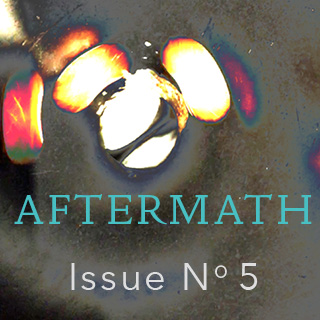The day after Donald Trump became the president-elect of the United States, I was sexually assaulted in his name. A young, white man who was not intoxicated grabbed my butt so strongly as to leave bruises that look like fingerprints. As he was reaching around to the front, he yelled, “If my president can grab pussy, so can I.” There were four witnesses—all white men—who looked away. This was at a bus stop in broad daylight in an ostensibly liberal city in a blue state on the West Coast.
Earlier that day, a post collating sexist tweets expressing similar sentiments to the catcall hurled at me was circulating on Facebook. I nabbed it. I had seen several of my white male friends posting jokes and making light of the election results and wanted to demonstrate just how serious the results were for many, many people. I posted the collection of tweets celebrating men’s freedom to grope any woman they liked now that Trump was in charge, pleading with the white men making sarcastic jokes to stop and realize how serious the ramifications of this election are for vulnerable people.
A white man commented that it was “just as” sexist and racist to blame white men because it’s a huge generalization and instead insisted I rephrase to an even broader generalization: refer to the white men making sarcastic jokes as “the people” who are making sexist jokes. Another white man concurred. To be fair, one white man did attempt to explain how the first two men’s response was oppressive and part of the problem; the first two men attacked him, too.
It’s not women’s responsibility to educate men on sexism, but sexism and misogyny will end when men want them to end. Women can organize for one another’s safety, but the reasons we have to will not become obsolete until men use their power on behalf of real equality, not just equal application of the term sexism. It’s painful that this is how some white men would rather use their power. And it’s frustrating that pointing that out usually causes more infighting and vitriol than it does discussion and compassionate listening, especially since it’s true.
If people with power and privilege—white people, men, straight people, cis people, evangelical Christians—want to use this power to perpetuate or ignore violence, they might be falsely legitimized a little while longer. But we do not have to reconcile with our abusers. It is not “divisive” to refuse to go along to get along when the humanity of vulnerable people is dismissed by those in power. The calls for unity are self-serving if they don’t include a commitment to act on behalf of the marginalized and the targeted. The demands that we all “come together” are empty at best if they are not accompanied by genuine apologies and sustained action for social, racial, economic, and environmental healing, and equality and justice.
m.nicole.r.wildhood
In addition to blogging at http://mnicolerwildhood.com, m.nicole.r.wildhood’s work has appeared in The Atlantic, The Atticus Review, and elsewhere. She currently writes for Seattle’s street newspaper Real Change and is at work on a novel, and several poetry volumes, including one in Spanish.
READ THE REST OF ISSUE NO. 5.
CONTENTS
Editor’s Note
Aftermath Stories
Leave Your Drawings in this House
Fandanguillo
The Enormity




